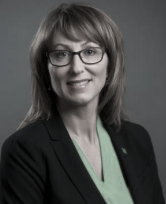September 24, 2019
By Tammy Rea and Tracey Lundell, Financial Experts
Health Professionals are busy. Life can often feel chaotic, and the task of organizing your finances quickly drops on the list of priorities. But when you neglect to attend to your finances, things can snowball and recovering can seem insurmountable. Here are some insights that you may find helpful. So, if you have ever felt overwhelmed or disorganized when it comes to your banking and finances, you’re not alone…and just a little bit of attention may save you hours of time and stress.
1. Educate yourself
As the old saying goes, “No one cares as much about your money as you do.” Although doctors should surround themselves with a team of trusted professionals to help manage their finances, it is imperative to have at least a foundational knowledge about banking, accounting, and investments.
There is an endless wealth of resources for those who are interested – books,
websites, online videos and podcasts. There are even some basic, introductory-level learning on the topics of personal finance, accounting, and investing. As physicians and small business owners, you may want to seek out resources that are focused on managing finances and interests within professional corporations (for physicians and other health professionals).
Doctors focus on caring for patients and managing practices, and while you need not become experts in investing and economics as well (but feel free if that is your passion!), having at least a foundational knowledge comes in handy when making decisions that financial professionals present you with.
2. Go paperless
Ditch the old, traditional paper and file folders. So many bills, invoices, letters and documents are already sent digitally anyway. Invest in a high quality, fast, scanner for any paper documents you may receive.
With today’s technology, there are many options for saving and organizing all of your documents– financial or otherwise – including cloud-based solutions that can synchronize across all of your computers and mobile devices.
Here is a simple way to organize your digital file system: Name all your files starting with a YYYYMMDD date format. A handy trick, since file folders will organize themselves in chronological order.
This can also make it easy to search and find your files if you know the date of the item. For instance, if you need to find an invoice that would have been dated August 20, 2019, you can simply search your files for “20190820” and reveal a concise list.
3. Use accounting and financial tracking software
Many doctors still aren't taking advantage of financial and banking software. Without it, monthly bookkeeping can be painstakingly laborious, having to sift through transactions line-by-line. In fact, there are many that do not even summarize their finances each month. Sometimes people prefer to avoid and procrastinate – and that is what leads to snowballing chaos.
Monthly banking and accounting can take as little as 15 minutes each month – for both your personal and business banking. There are some options for software programs that allow for seamless tracking and categorization of monthly transactions. Once the software
knows which transactions fall into certain categories, it will automatically categorize each transaction, making subsequent months quicker.
One of the best parts about staying organized with accounting programs and paperless filling systems is that when it comes tax time the information is all readily available to hand over to your accountant. Often, it can take as little as 30 minutes to prepare year-end information for your tax professional.
4. Set reminders and automate payments
Doctors have enough to remember and stress over. Take a load off your mind by taking advantage of simple technological solutions.
Online banking allows people to set up scheduled, automatic, monthly transfers and payments. For instance, you can set up your online banking to automatically process transactions from your corporation, such as your monthly salary.
Take advantage of “Reminder” or “To Do” programs and apps. Set monthly notifications for regular, recurring tasks such as monthly Canada Revenue Agency (CRA) installments, clearing credit card balances, and so on. You may even want to set a simple reminder to sit down and do your banking on a monthly basis in order to keep things organized.
5. Surround yourself with a team of trusted professionals
It's essential that healthcare professionals surround themselves with a team of trusted professionals to help advise and organize their finances.
This team may include an accountant, a lawyer, a financial advisor or planner, a “go-to” contact at your bank, and insurance broker(s). All of these professionals should be unquestionably familiar with the unique needs of physicians, particularly incorporated physicians.

Tammy Rea and Tracey Lundell have worked in the financial industry together for over 25 years, with special focus on advising Health Care Professionals. Their experience providing lending, banking, wealth management and financial planning advice has been invaluable to many individuals as they focus on making their professional careers a success.





